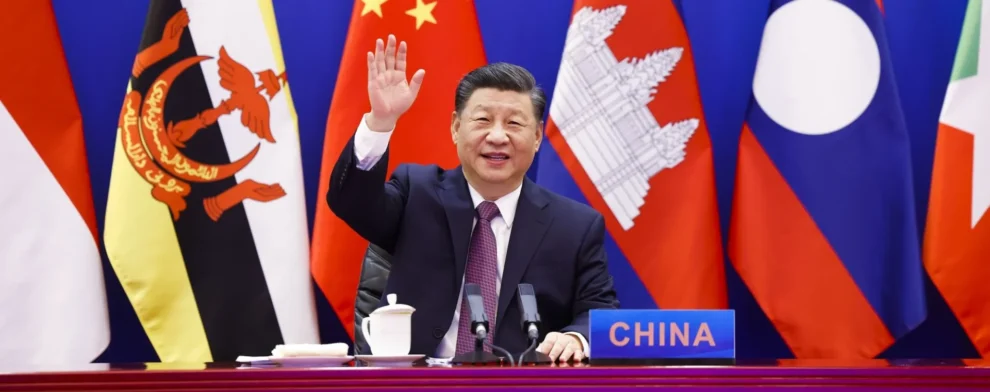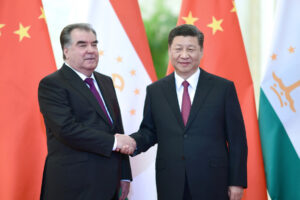Asean ministers have agreed to revive talks on the code of conduct, but they are applying international law rather than China’s preferred rules China must understand that coercion and negotiations cannot take place simultaneously if it wants to bring the code of conduct into being
The South China Sea, one of the world’s busiest sea lanes and an area of great strategic interest, remains contested amid overlapping territorial claims. China’s nine-dash line clashes with the exclusive economic zones (EEZ) of many Southeast Asian states that were awarded to them under the United Nations Convention on the Law of the Sea (UNCLOS).
Increasing Chinese assertiveness in the South China Sea through its naval and military modernisation, artificial islands, resource exploration and aggressive sea patrols have kept other claimant states on their toes.
As recently as February 6, the Philippines found China using a “military-grade laser light” to force its coastguard ship to retreat that was on a mission to resupply Philippines troops at the Second Thomas Shoal located in the disputed Spratly Islands.
The laser temporarily blinded the crew and halted the mission. While the Philippines maintains the right to conduct legitimate activities within its EEZ, Chinese aggressiveness has often jeopardised the Philippines’ maritime rights, as it has of the other South China Sea states.
Moreover, China could consider the recent Vietnam-Indonesia deal over EEZ demarcation as a threat to its maritime claims in the South China Sea. While this agreement has settled a long-standing maritime dispute of overlapping EEZs between Indonesia and Vietnam, it could provoke Chinese retaliation.
Under its Asean chairmanship for the year 2023, Indonesia has made a move towards reviving talks on China’s long-demanded South China Sea code of conduct. As Vietnam, Philippines, Malaysia, Brunei and Taiwan have rejected Beijing’s demands to give up their territorial rights, the increasing military pressure from China has brought together traditionally non-aligned Southeast Asian states to seek cooperation and support.
These developments have come amid frequent dangerous encounters between Chinese and other vessels throughout 2022 and into 2023. In a statement following a two-day meeting in Jakarta early last month, the Association of Southeast Asian Nations (Asean) did not name China but pointed out that “land reclamations, recent developments and serious incidents” had “eroded trust and confidence, increased tensions and may undermine peace, security, and stability in the region”.
For this reason, Asean ministers have agreed to revive talks on the code of conduct, but they are not playing by China’s rules. While Beijing clings to the idea that international law does not apply to the South China Sea dispute, Asean ministers continue to emphasise cooperation, convergence of interests and open regionalism to ensure stability and the rule of law in the region.
According to Indonesian Foreign Minister Retno Marsudi, Asean ministers are willing to conclude code of conduct negotiations as soon as possible but will need several rounds of negotiations. The first round is expected to take place later this month.
At the same time, China’s coercive behaviour against rival claimants continues and only increases tensions, making the regional atmosphere not conducive for cooperation and mutual trust. With such dynamics, how likely to materialise is a South China Sea code of conduct? Is China serious about setting ground rules, or is it only another bluff to increase its assertiveness in the South China Sea?
It is clear China wants Southeast Asian states to accept and enforce Chinese rules if they want to navigate in the region. However, Southeast Asian states are determined to enforce UNCLOS rules to uphold freedom of navigation and the liberal international order.
Will Indonesian efforts bear fruit given these circumstances? While Indonesia aims to establish a set of rules for maritime behaviour in the South China Sea as chair of Asean, negotiations could extend beyond its one-year tenure given competing interests and ideologies. What is important is that negotiations continue despite the Asean leadership rotating.
A plausible course of action is to begin with some basic principles which govern behaviour at sea. This will ensure China halts its aggressive and coercive actions against other states while negotiations are ongoing. It will help build mutual trust and confidence among Southeast Asian states as well as develop respect and ensure observance of the code of conduct once it materialises.
China needs to understand that coercion and negotiations cannot take place simultaneously. If it wants to develop a code of conduct now that Indonesia has persuaded Asean members to revive talks, China should cooperate to bring peace, security and stability to the region. Even if the code of conduct does not emerge under Indonesian leadership, Indonesia will always remain a flag-bearer for initiating this crucial step.
Simon Hutagalung is a senior diplomat in Indonesia’s Ministry of Foreign Affairs. Presently, he is the coordinator for terrorism at the Centre for Asia, Africa and Middle East Region. The opinions expressed here are the author’s own and do not represent those of the ministry
Source: South China Morning Post
















